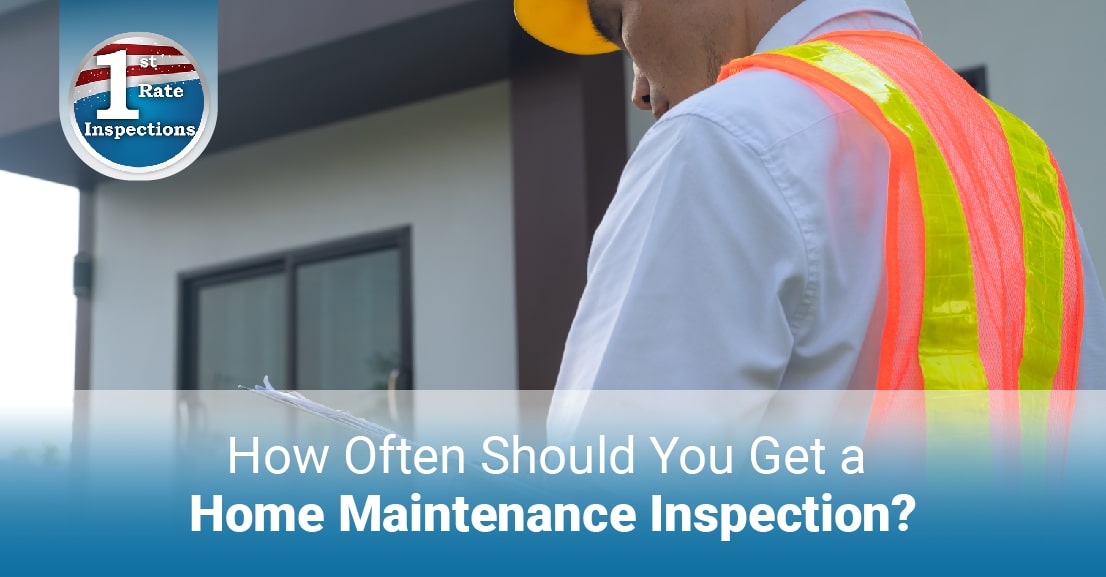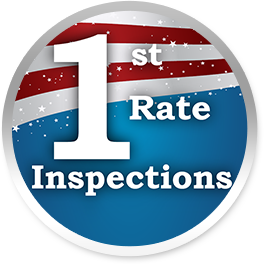
Homeowners shall maintain their homes to protect their investments and extend its life. Inspections are a crucial component of home maintenance. You may actively learn more about your property’s state and take care of any potential problems before they become expensive and problematic by actively engaging the assistance of a certified home inspection company Houston. But how frequently should a home maintenance inspection be scheduled? It is essential to understand how often you should schedule an inspection to maintain the home’s overall health and value. In this blog, we’ll look at the variables that affect the suggested inspection frequency and offer advice on how frequently you should seek out the services of a reliable home inspection company.
Importance of Regular Home Maintenance Inspections
Regular home maintenance inspections crucially ensure your property’s overall health, safety, and value. You can easily identify and address any issues by actively participating in these inspections before they become pricey and significant. Regular inspections give homeowners peace of mind and let them make informed decisions about their property, from identifying hidden damage to maintaining optimal functionality.
Early problem discovery is one of the critical advantages of routine home maintenance inspections. The untrained eye might not immediately see many issues that emerge in homes, such as water leaks, electrical issues, or structural damage. However, a professional home inspection business has the knowledge and resources to properly evaluate your property, spotting potential issues before they become significant. You can prevent costly repairs and future safety risks by actively planning regular inspections that can identify problems in the earliest stages.
Additionally, regular inspections help homeowners preserve their home’s systems’ best performance and operation. These essential parts, which include plumbing, electrical, and HVAC systems, need routine maintenance to guarantee effective operation. Actively conducting inspections can help you spot any wear and tear, clogs, or malfunctions so you can fix them right away and keep your routine uninterrupted. Furthermore, inspections can help increase energy efficiency by spotting places requiring weather sealing or insulation, decreasing energy waste and utility costs.
You can stop the deterioration of your home’s structure and components by taking proactive measures to solve minor issues before they become major ones. This proactive strategy helps preserve the quality of your property and reduces the need for future costly fixes or improvements. Additionally, routine inspections for house upkeep help to keep your property safe and increase its worth over time. Further, regular inspections document your house’s condition, which is helpful for insurance claims, property appraisals, and home sales.
A safe living environment is ensured by regular home inspections, which is a crucial feature. Inspections help locate potential safety risks, including damaged wiring, mold growth, or structural instability. You may safeguard yourself, your family, and your investment against potential mishaps or health risks by proactively addressing these problems. Additionally, because they help assure adherence to safety laws and regulations, house inspections are particularly crucial for older homes or buildings that have been renovated.
Factors Influencing the Frequency of Home Maintenance Inspections
Understanding the elements that affect the frequency of home maintenance inspections is essential to figuring out how frequently you should plan inspections for your property. There is no one-size-fits-all solution, but considering these important considerations will enable you to choose what is relevant for your particular set of circumstances.
The age of your house significantly influences the frequency of inspections. Older homes typically need to be inspected more frequently because of the possibility of wear and tear over time. Plumbing problems, obsolete electrical systems, and deteriorating infrastructure are significant issues that can occur in older homes. You can find and solve these issues before they worsen by planning regular inspections.
Another factor to think about is the location of your house. The maintenance requirements of your property can change depending on the weather and environmental factors experienced in different geographic areas. Homes near the coast, for instance, can be more prone to wind or saltwater damage, while residences in colder climates might need insulation and winterization inspections. You can change the frequency of inspections by being actively aware of the specific challenges your location poses.
The frequency of inspections also depends on the kind of property you own. For instance, rental properties frequently have a more significant turnover and higher usage, necessitating more frequent inspections to guarantee tenant safety and ongoing property maintenance. As a precaution against problems like water leaks or pest infestations that can go undetected, vacation homes or other properties may need to undergo more frequent inspections.
Your habits and way of life may also impact the frequency of inspections. You might be able to extend the intervals between inspections if you take an active approach to home maintenance and constantly take care of minor concerns as they come up. On the other hand, more frequent inspections may be required to discover problems early on if you have a hectic schedule or lack the knowledge or skills to spot possible problems.
Inspections are necessary to make sure that all systems are operating properly and any new additions adhere to building codes. Considerable property improvements or additions, natural disasters, or significant changes in occupancy should prompt these inspections. It’s also crucial to consider any particular occurrences or changes to your house that can call for an inspection.
How Often Should You Get A Home Maintenance Inspection
The exact requirements of your property and several other criteria will determine how frequently your home has to undergo home maintenance inspection. Although there isn’t a single answer for this, getting a home maintenance check at least once a year is generally advised. You can stay on top of any potential problems and maintain your home’s ongoing health and safety by actively scheduling these inspections.
Annual inspections allow you to thoroughly evaluate your property’s condition and find any undiscovered issues. A certified home inspection in Houston, TX, may actively investigate essential areas, including the roof, foundation, electrical systems, plumbing, HVAC, and more. By doing an annual inspection, you can discover minor concerns before they progress into significant, costly repairs.
Regular inspections, whether yearly or more frequently, allow you to actively manage your house’s value, safety, and health, giving you peace of mind and preventing minor issues to turn into major ones. The frequency of home maintenance inspections should ultimately be based on your unique situation and the demands of your property. You can choose an inspection schedule that best meets your needs by actively enlisting the help of a reputable home inspection business and talking to them about your worries and requirements.
Are you discovering trustworthy, comprehensive mold inspection and testing services in Houston, TX? Your search ends with 1st Rate Inspections! Our team of experts delivers exceptional solutions, guaranteeing a mold-free environment for your property. Don’t hesitate – book your inspection today to prioritize the well-being and safety of your living space. Take action now and rely on 1st Rate Inspections, the go-to choice for all your mold inspection and testing requirements in Houston, TX!




